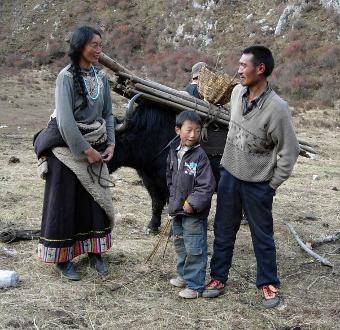China's Church
What kinds of Christian churches can you find in China?
Perhaps most well-known is the distinction between official government-approved Three-Self Patriotic Movement (TSPM) churches and unofficial ‘house or family churches’. Yet the situation is considerably more complicated than that, as explained in a recent China Source article quoted below.
“Some congregations are registered with the state and are affiliated with the Three-Self Patriotic Movement (TSPM). These congregations may have close ties with the TSPM or may be affiliated in name only, and they may be categorized by the state as either a ‘meeting point’ or a ‘church’. It should also be noted that some of these congregations meet all of the state-defined criteria for registration while others meet none of these criteria at all. An increasing number of registered congregations are also setting up their own small groups which meet in homes, factories or other businesses. These groups of believers are not large enough to register as meeting points. Some congregations are registered with the state independently of the TSPM…
There are also a huge number of congregations across China which are not registered. There are many reasons why congregations do not register or cannot register, and it would be an over-simplification to say that the main reason is theological.
Prior to religious law changes that took place in February 2018, some of these congregations were able to function freely without being officially registered because they had close ties to key officials or had informal ties with the TSPM. Other unregistered congregations simply took advantage of a period when the government had relaxed the enforcement of its religious laws and they operated secretively or in many cases quite openly. Some of these congregations were sizable while others were made up of a handful of people.
Since February 2018, however, the Chinese Communist Party has greatly tightened it's control over religion and is actively closing down all unregistered meetings. The unregistered church has been driven back underground. With modern surveillance methods being deployed by the authorities it has become difficult to meet together, in even in very small groups.
…THERE ARE MANY OTHER CHARACTERISTICS WHICH HELP DEFINE CONGREGATIONS.
Some are rural, some urban and others are located in the rapidly-changing suburbs. Some congregations are exclusively ethnic Han Chinese, while others are made up of a range of ethnic groups. Still others are exclusively so-called "minority" churches, for example: Chinese Korean or Miao.

Tibetan Nomad Family
There are congregations that are almost exclusively composed of migrants… Congregations may be extremely conservative or clearly Pentecostal…
There are congregations that are part of a vast and highly-organized network while others operate entirely (and sometimes defiantly!) alone. Some are made up exclusively of elderly people while others are exclusively young people. There are those that are solely for students, young professionals or intellectuals. Congregations may be made up entirely of employees from a single company or enterprise while others are made up of people from a particular trade...
There is a multiplicity of congregation types in China which do not fit neatly into the traditional ‘house church - Three-Self’ paradigm.”